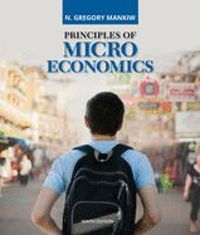Question
Economics (Week 8 Test) Question 1 (1 point) In economics, the invisible hand' refers to: Question 1 options: A system in which a local but
Economics (Week 8 Test)
Question 1(1 point)
In economics, the "invisible hand' refers to:
Question 1 options:
- A system in which a local but anonymous committee determines economic decisions
- A system in which free market entrepreneurs determine what is to be produced, as opposed to a command economy
- A tightly controlled economy in which the government decides what is to be produced
- An economy driven by factors intentionally hidden from the buyers and sellers
- None of the above
Question 2(1 point)
Considering the state of the Soviet Economy, it can be said that:
Question 2 options:
- A command economy is disastrous and inefficient
- A command economy revitalized Soviet economics
- A command economy is efficient but expensive
- A command economy worked well in Russia, but would not elsewhere
- None of the above
Question 3(1 point)
"Supply creates its own demand." This is known as:
Question 3 options:
- Demand-side economics
- Say's Law
- Marxism
- Keynesianism
- The Broken Window Fallacy
Question 4(1 point)
Keynes wrote which of the following books:
Question 4 options:
- Knowledge and Power
- The General Theory of Employment, Interest and Money
- Wealth and Poverty
- Who's Got You?
- The Which is Seen and Unseen
Question 5(1 point)
A "cartel" is:
Question 5 options:
- An organization of people that uses monopolistic tactics
- An enforcer of free market prices
- A judge who decides cases involving money
- Another term for a "competitive Market"
- An instrument used for carrying goods and services
Question 6(1 point)
Blessed John Duns Scotus and St. Alphonsus Liguori thought that monopolies were .
Question 6 options:
- Morally impermissible
- Permissible with permission of the government
- Permissible if the proceeds went toward the poor
- A sign of a healthy economy
- Virtuous
Question 7(1 point)
"Monopoly" means:
Question 7 options:
- One buyer
- Many sellers
- Many buyers
- High taxes and low employment
- One seller
Question 8(1 point)
An "economy of speed" refers to:
Question 8 options:
- The ability to quickly adjust products and/or services
- An overall nation's economy
- An economy in which workers are extremely productive
- An economy focused on production of moving products, such as vehicles
- An economy that operates during 24x7
Question 9(1 point)
What has been the effect of the OPEC cartel?
Question 9 options:
- It has had the effect of making all citizens wealthier.
- It has caused global turmoil for decades.
- It has economically benefited America for generations.
- It has had the effect of great global collaboration and peace.
- It has been an excellent example of the free market in action.
Question 10(1 point)
In order to maintain their monopolies, large companies often turn to which entity for protection?
Question 10 options:
- Apple Computer
- Goldman Sachs
- The federal government
- The National Endowment for the Arts
- None of the above
Question 11(1 point)
Say's Law is a foundational belief of:
Question 11 options:
- Classical economics
- Marxist economics
- Command economics
- Keynesianism
- Metaphysics
Question 12(1 point)
Steve Jobs, the founder of Apple Computer, once said that "it's really hard to design products by focus groups. A lot of times, people don't know what they want until you show it to them." Jobs' comment supports which of these economic beliefs?
Question 12 options:
- Demand creates its own supply
- Supply creates its own demand
- Supply and demand are unrelated
- Supply must be dictated by the state
- Demand is best assessed by the state
Question 13(1 point)
According to Adam Smith, though entrepreneurs set out to enrich themselves, what very often happens as a result?
Question 13 options:
- Entrepreneurs must bribe officials and form monopolies, otherwise they can't make money.
- They go bankrupt because they have no idea what anyone in the community wants.
- The government puts them in prison if they make money.
- Entrepreneurs enrich the community by answering the need and wants of the citizens.
- Entrepreneurs stay rich and usually fail to provide meaningful enrichment of the community.
Question 14(1 point)
A __ can occur when one or a few persons conspire to corner a market on a product or service in order to inflate the price for its own profit.
Question 14 options:
- Communist revolution
- Monopoly
- Free market
- Union
- Stimulus
Question 15(1 point)
Which of these is a famous and active stock exchange in America?
Question 15 options:
- The Front Royal Stock Exchange
- The London Stock Exchange
- The Toledo Stock Exchange
- The New York Stock Exchange
- The Seattle Stock Exchange
Question 16(1 point)
What is the nickname of the events of the communist revolution in Russia in 1917?
Question 16 options:
- The Tides of War
- The Gates of Fire
- Red October
- The War of Art
- The Winds of War
Step by Step Solution
There are 3 Steps involved in it
Step: 1

Get Instant Access to Expert-Tailored Solutions
See step-by-step solutions with expert insights and AI powered tools for academic success
Step: 2

Step: 3

Ace Your Homework with AI
Get the answers you need in no time with our AI-driven, step-by-step assistance
Get Started


